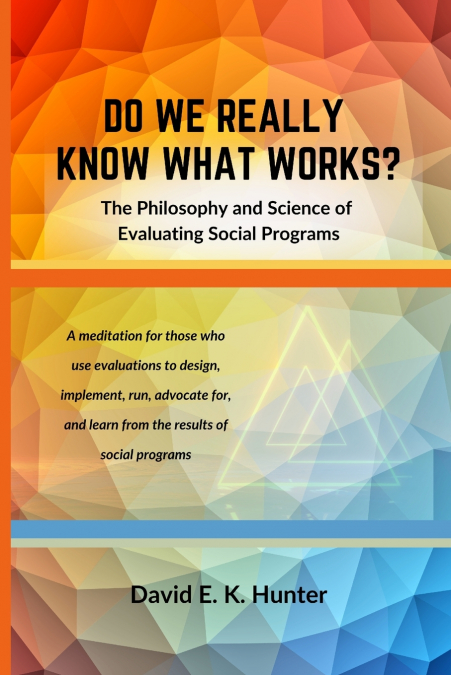
David E. K. Hunter
For social program practitioners, evaluators, funders, consultants, and advocates, this book contrasts two major evaluation approaches: Randomized Controlled Trials (RCTs) and realist evaluations. Placing both in the historical context of the evolution of Western thought, it first examines the assumptions and beliefs that underly and frame their outlook on knowledge and how we acquire it. Then, it examines their strengths and weaknesses: to what situations are they best suited, what they can and can’t deliver, which questions they can and can’t answer, and how their results should be understood and utilized. Finally, it offers a series of concrete proposals for improving the quality of program evaluations and refining how to use the two approaches to help improve the lives and prospects of their intended beneficiaries.